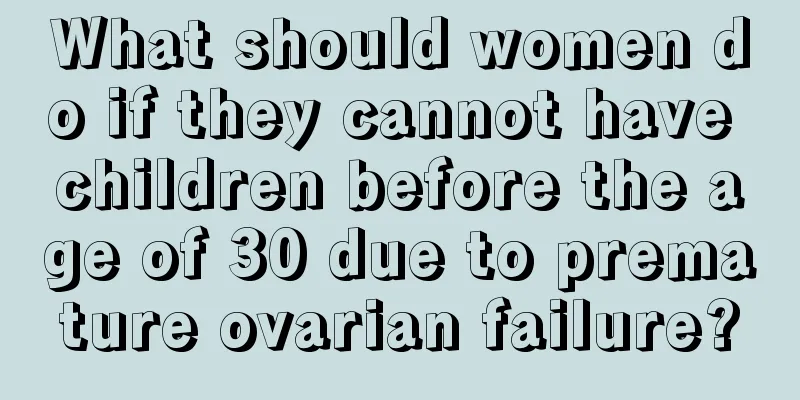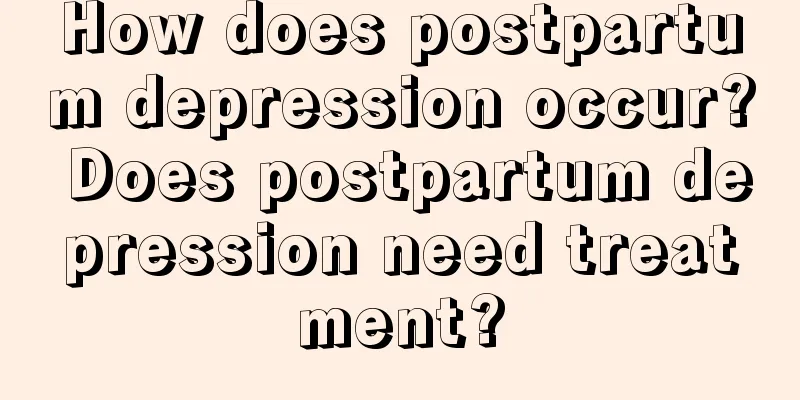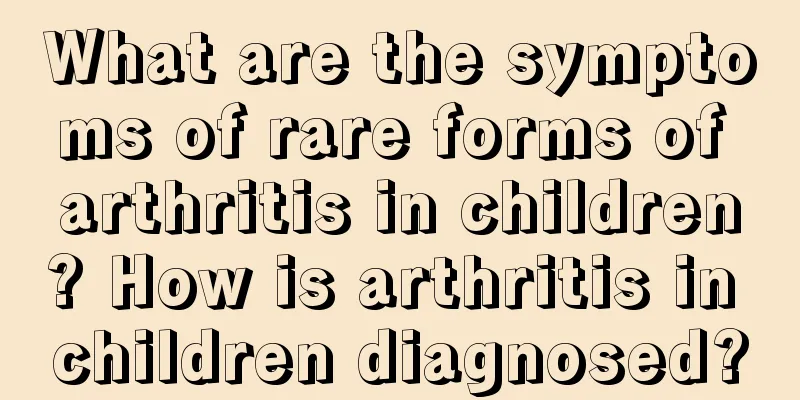What should women do if they cannot have children before the age of 30 due to premature ovarian failure?

|
Many couples have not seen an increase in fertility after entering pregnancy. Due to various factors, they are facing the pain of not being able to conceive. Generally speaking, premature ovarian failure can easily lead to a woman losing her fertility. It is very sad for women not to be able to have children and experience the feeling of being a mother. So what are the causes of premature ovarian failure in women? What should women do if they have premature ovarian failure? The following is a collection of relevant information for your reference. What is premature ovarian failurePremature ovarian failure refers to a condition in which women who have established regular menstruation experience persistent amenorrhea and sexual organ atrophy due to ovarian dysfunction. There is often an increase in gonadotropin levels and a decrease in estrogen. The clinical manifestations are accompanied by varying degrees of pre- and post-menopausal symptoms such as hot flashes, sweating, vaginal dryness, and decreased libido. Premature ovarian failure is common in women of childbearing age. This disease causes the patient's ovarian function to fail prematurely, causing great harm to women's physical and mental health and married life. What is the cause of premature ovarian failure?1. Immune factors. Most immune diseases such as thyroiditis can be combined with premature ovarian failure. 2. Genetics and surgical history. If there are female relatives in the family who have menopause before the age of 40, have chromosomal abnormalities, or have undergone pelvic surgery, the risk of premature ovarian failure is higher than that of the general population. 3. Excessive weight loss. Excessive weight loss will lead to a sharp decrease in body fat content. When the fat ratio is too low, it will affect the level of estrogen in the body, leading to insufficient estrogen production, causing menstrual disorders and even amenorrhea. Abnormal amenorrhea will inhibit the ovulation function of the ovaries and easily cause premature ovarian failure. 4. Ovulation-inducing drugs. Some women who have been unable to conceive for a long time will choose to take ovulation-inducing drugs to promote ovulation in order to increase the chance of pregnancy. However, if the ovulation-inducing drugs are taken improperly, they will cause great harm to the ovaries. 5. Iatrogenic and idiopathic premature ovarian failure. Removal of both or one ovary before the age of 40 can cause the ovarian and other tissues to function poorly, leading to premature ovarian failure. Idiopathic premature ovarian failure is a secondary amenorrhea without a clear pathogenic factor. It usually occurs during the reproductive age. Clinically, it presents with gradual or progressive oligomenorrhea, followed by amenorrhea and menopausal symptoms such as hot flashes and irritability. The internal and external reproductive organs are in a state of atrophy. 6. Infectious factors. Some viruses such as mumps virus can cause ovarian inflammation or immune ovarian damage, leading to premature ovarian failure, and make the ovaries insensitive to the stimulation of pituitary gonadotropin. 7. Psychological factors: Negative psychological emotions will reduce the secretion of immune active substances, while strong emotional fluctuations or huge mental stimulation will affect the central nervous system, leading to irregular menstruation and premature ovarian failure. What to do if you have premature ovarian failure1. Surgical treatment a. For POF caused by ovarian vascular factors leading to ovarian nutrient deficiency, early diagnosis and early treatment should be carried out, and vascular bypass surgery should be performed as soon as possible before the ovarian function is completely lost, such as anastomosis of the ovarian artery with the inferior mesenteric artery or renal artery, to restore the ovarian blood supply and restore the vitality of the ovary; b. For those who are in the late stage of POF or have ovarian deficiency due to various reasons, ovarian transplantation has become a very successful treatment method. 2. Immunotherapy: Immunotherapy is feasible for patients with confirmed antibody factors. Immunization vaccination has become a more reliable treatment method. 3. Hormone therapy: It can improve symptoms such as facial flushing, menstrual disorders, and vaginal dryness caused by decreased estrogen levels. It is necessary to constantly adjust the usage, dosage, and route of medication under the guidance of a professional gynecologist. In addition, regular physical examinations are required, preferably once a year. Periodic supplementation of estrogen and progesterone can prevent epithelial atrophy and calcium loss in the reproductive organs, protect the cardiovascular system, and prevent changes in lipid metabolism. Oral estrogen can be taken at any time, but it should be injected intramuscularly daily starting a few days after taking estrogen, and continuous injections are required. What to eat for premature ovarian failure1. Eat more carrots Foreign nutritionists have found that women who eat carrots an average of five times a week have a 50% lower rate of ovarian disease than women who do not eat carrots. 2. High calcium diet Daily intake of high-calcium foods can reduce the incidence of ovarian diseases. According to data, women who consume high-calcium foods every day have a 46% lower chance of developing ovarian diseases than women who do not consume enough calcium. 3. Folic Acid Increasing the intake of foods rich in folic acid can reduce the incidence of ovarian diseases in women. Swiss researchers found that women who often eat foods rich in folic acid have a 74% lower risk of ovarian diseases than women who rarely eat folic acid foods. Folic acid is a water-soluble vitamin B that is rich in green vegetables, citrus fruits and whole grains. |
>>: Can I eat winter dates during breastfeeding? Can I eat winter dates after I have given birth?
Recommend
How long does a cesarean section take? How much does a cesarean section cost?
It is reported that hospitals subsidize normal bi...
What are the signs that a pregnant woman is about to give birth?
The mother has been pregnant for several months, ...
How to strengthen the education of children who are impetuous and impatient? How to do psychological education for children?
The issue of children's education has always ...
What to eat to relieve the severe reaction during pregnancy? What is the reason for the severe reaction during pregnancy?
Many pregnant women will experience some pregnanc...
How to choose a baby stroller? What are the good brands of baby strollers?
There is one thing that every family with a baby ...
When is the best time for children to learn piano?
The education of smart and outstanding children s...
Why do children love to eat hair? Maybe they are losing too much zinc!
Love to eat strange things, such as biting nails,...
The correct way to use Kao softener. Which Kao softener smells good?
Putting some softener in the laundry can make the...
Can Zhenshiming Eyewash be used every day? What is the function of Zhenshiming Eyewash?
With the development of the times, eyewash has gr...
Will a baby's brain be damaged if he has diarrhea and a fever of 39 degrees? What should I do if my baby has diarrhea and a fever of 39 degrees?
There are many types of fever. One type is fever ...
Can the cost of caesarean section be reimbursed? How much can the cost of caesarean section be reimbursed?
Doctors generally recommend natural births if pos...
Can I still have children if I have premature ovarian failure?
In the obstetrics and gynecology clinic, more and...
What is the appropriate temperature for bathing your baby in winter? What are the precautions for bathing your baby in winter?
For mothers, bathing babies in winter is a big pr...
Can I use ordinary sanitary napkins after giving birth? The difference between sanitary napkins for postpartum women and ordinary sanitary napkins
Many mothers need to use sanitary napkins because...
How to prevent baby food poisoning How to prevent baby food poisoning
The baby's diet is something that all mothers...









